Feds Slam Mt. Hope Auction for Denying Vet Care to Dozens of Sick, Emaciated Animals
While scoping out the Mt. Hope Auction’s Mid Ohio Alternative Animal and Bird Sale—an exotic-animal auction held three times a year in Mount Hope, Ohio—PETA Foundation staff have witnessed what can only be described as a house of horrors. Animals there were emaciated; had fractured or dislocated legs, open wounds, or significant hair loss; languished in cages so small that they couldn’t even stand up; and were enduring other equally appalling conditions.
At the Mt. Hope Auction, scofflaw sellers pass off sick, injured, and neglected animals to the highest bidder. PETA has long documented numerous instances of extreme neglect at the thrice-yearly sale, including that animals were suffering from broken legs, open wounds, respiratory infection symptoms, eye and nose discharge, loose stool, hair and feather loss, and overgrown coats and hooves, and that other animals were emaciated, lethargic, and exhibiting abnormal repetitive behavior, including pacing frantically and biting the cages to which they were confined.
PETA is calling on federal authorities to shut down this house of horrors before another suffering animal is sold off like a piece of old furniture.
The “Mt. Horror” Auction was slapped with an official warning from the USDA in January 2023 following back-to-back inspections detailing alleged AWA violations, including for failing to notice a ram who had been left for dead and having unsafe facilities. A USDA inspector even had to free a distressed white-tailed deer whose leg had become ensnared in a gap in an enclosure.
Since 2022, inspectors with the U.S. Department of Agriculture (USDA) have cited the Mt. Hope Auction for more than 50 alleged violations of the federal Animal Welfare Act.
A federal report released in June 2024 reveals that the Mt. Hope Auction was cited by the USDA for denying veterinary care to 42 sick, underweight, and emaciated animals at the September and November 2023 Mid Ohio Alternative Animal and Bird and Animal Sale. The move comes after PETA submitted formal complaints to the agency and provided evidence of extreme neglect at these auctions.
According to the USDA report, the violations at Mt. Hope included the following:
- Multiple sheep were underweight and had diarrhea caked on their hindquarters.
- A coatimundi was kept in a cage with food and water dishes coated in “brown/orange diarrhea.”
- Two Nilgai antelopes and several cows were “severely emaciated.”
- An underweight alpaca was lethargic and unresponsive.
- Numerous birds had severe feather loss.
- Several animals—including a goat, a fox, and two sheep—had eye or nasal discharge.
The report also notes that the auction illegally accepted nearly 90 animals for consignment from sellers who didn’t have the required federal license. USDA inspectors observed one unlicensed seller leaving the auction with the animals they had brought after being informed by an inspector that selling the animals would be illegal—only to return after the inspectors were gone and sell the animals anyway.
As the PETA Foundation’s visits to Mt. Hope auctions have revealed, nothing has changed for animals there. They continue to suffer at the hands of cruel suppliers and exhibitors who buy, sell, and exploit them as if they were mere objects.
What Happened at the September 2023 Mt. Hope Auction?
At the September 2023 Mt. Hope Auction, PETA Foundation staff saw animals who were suffering in dire conditions. Most of these victims were distinguished by numbers instead of names, illustrating the callous attitude that animals are things, not individuals. Here are some of their stories:
Red Fox ‘Number 7142’
This fox was suffering from a severely fractured and mangled leg and was in desperate need of intensive surgery or possibly amputation. The sellers confined the fox to a transport carrier with another fox, putting the animal up for auction, despite the dire condition of the leg. The auctioneer minimized the fox’s apparently serious injury, dismissively stating, “One has a bad leg.”
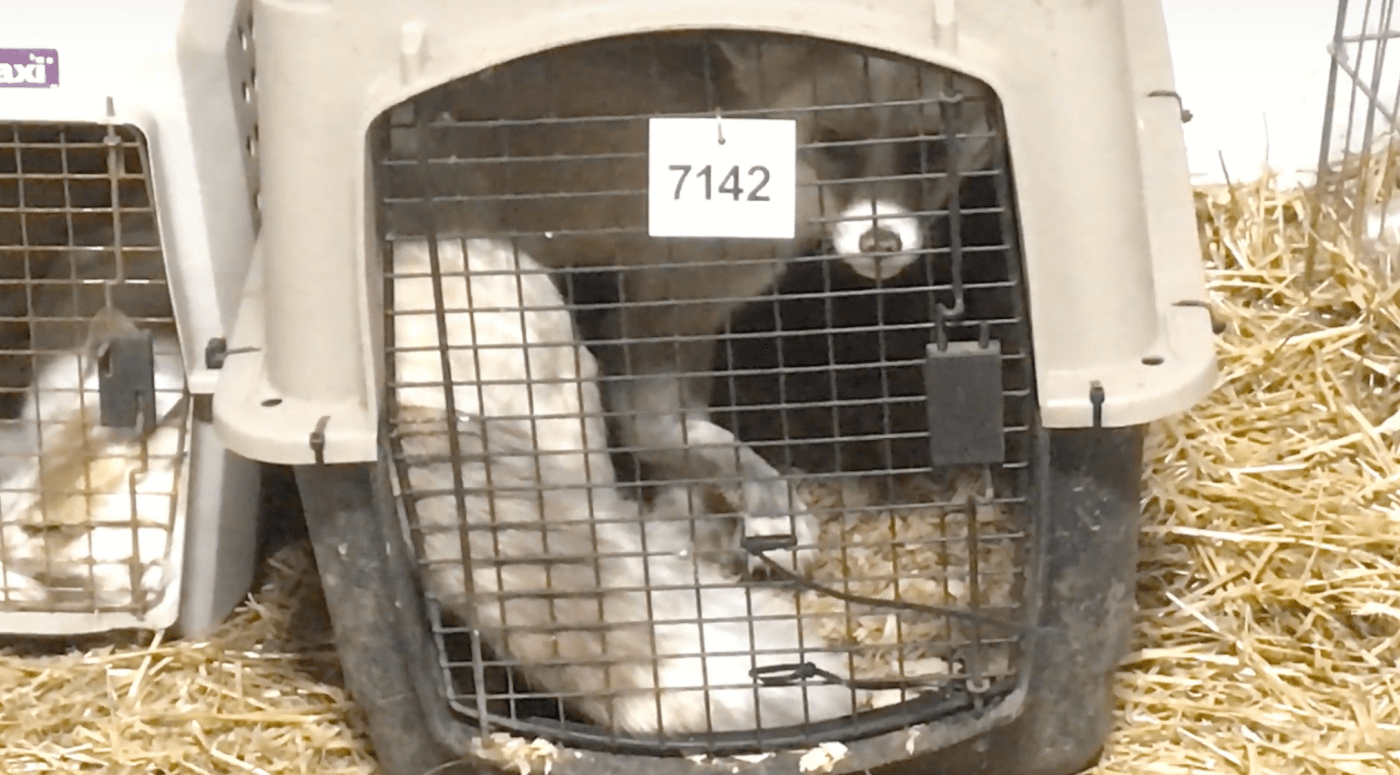
Red Fox ‘Number 6393’
This 4-year-old red fox had slight eye discharge—a potential indicator of an upper respiratory infection—and was seen repetitively shaking his or her head, likely in response to parasites such as fleas or ear mites. The animal was caged with another fox, and both were sold during the auction, likely to be used for breeding.
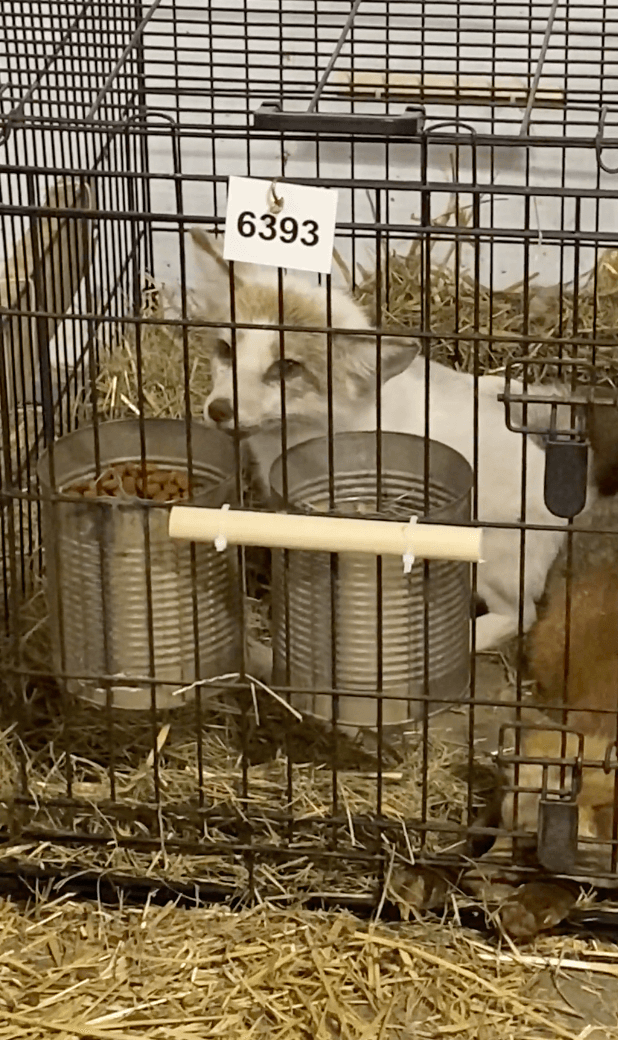
Chukar
A chukar, a kind of partridge, was seen crammed in a cage with several other birds while apparently suffering from a fractured or dislocated leg.
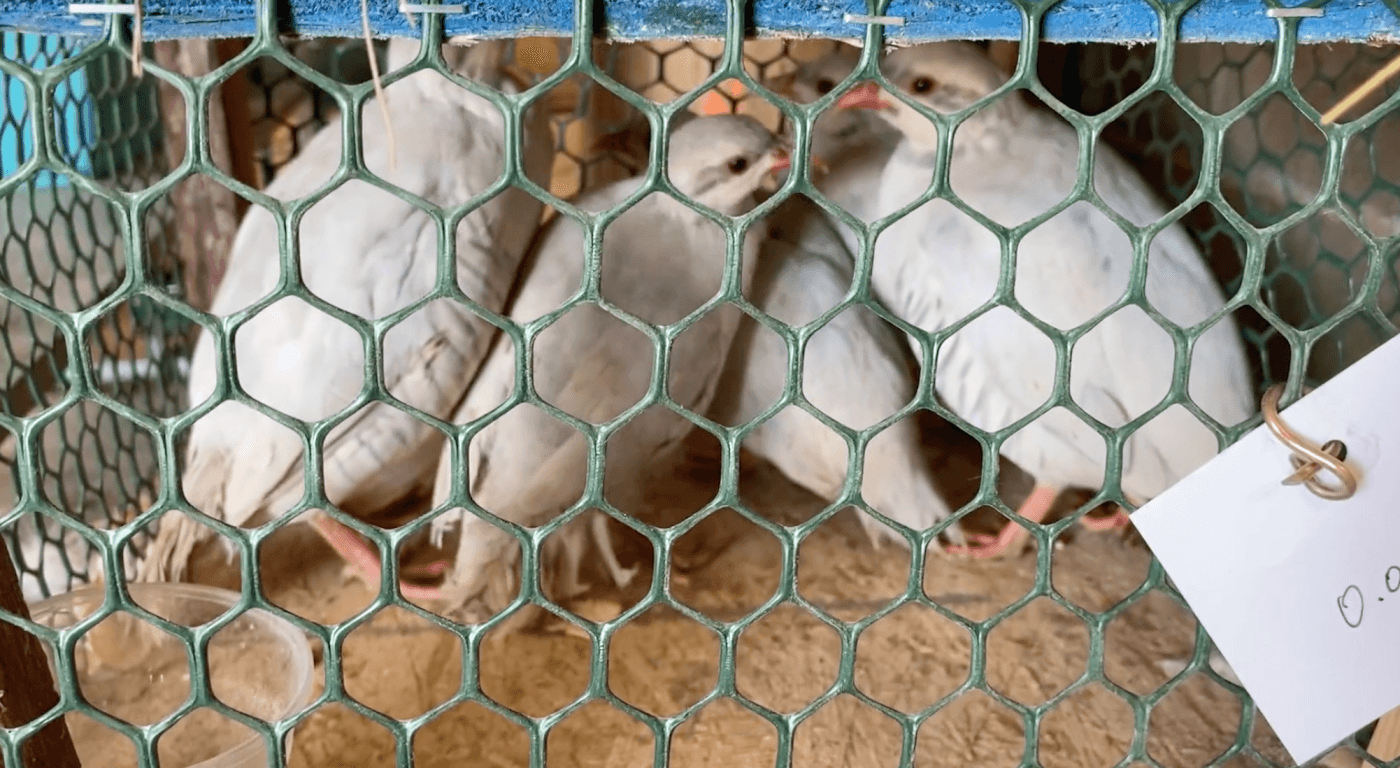
Sheep
In a pen crowded with sheep and goats, a sheep was seen with apparent nasal discharge, symptomatic of an upper respiratory infection. At events like the Mt. Hope Auction, in which many animals are crammed together in pens and cages, the risk of spreading dangerous diseases is high. This type of situation also poses a risk to the public, as animals can carry zoonotic diseases—ones that can spread between humans and other animals.
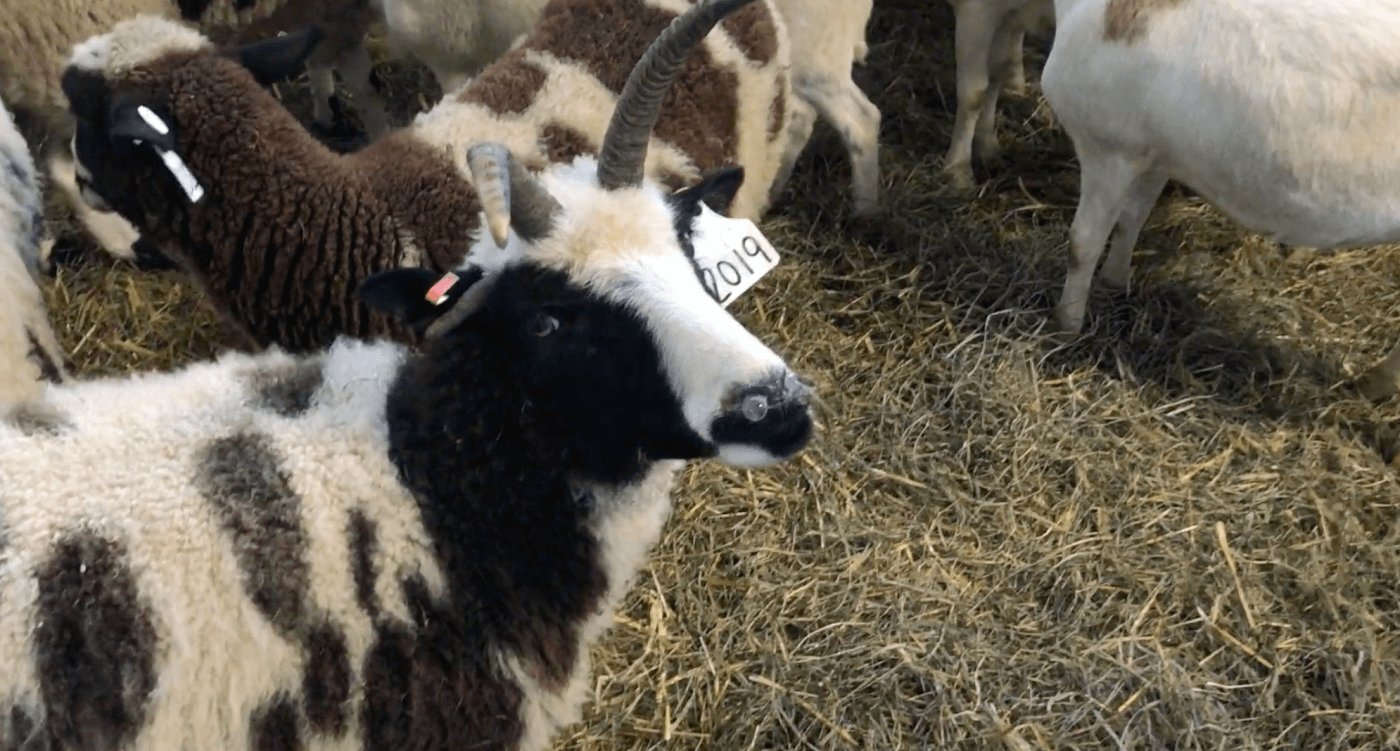
Silver Fox ‘Number 6395’
A young silver fox exhibited signs of psychological distress, such as repetitively biting and scratching at his cage. He was seen repeatedly pawing at his water bowl, which was left empty. According to an auctioneer, the fox was less than a year old and had been exploited in shows.
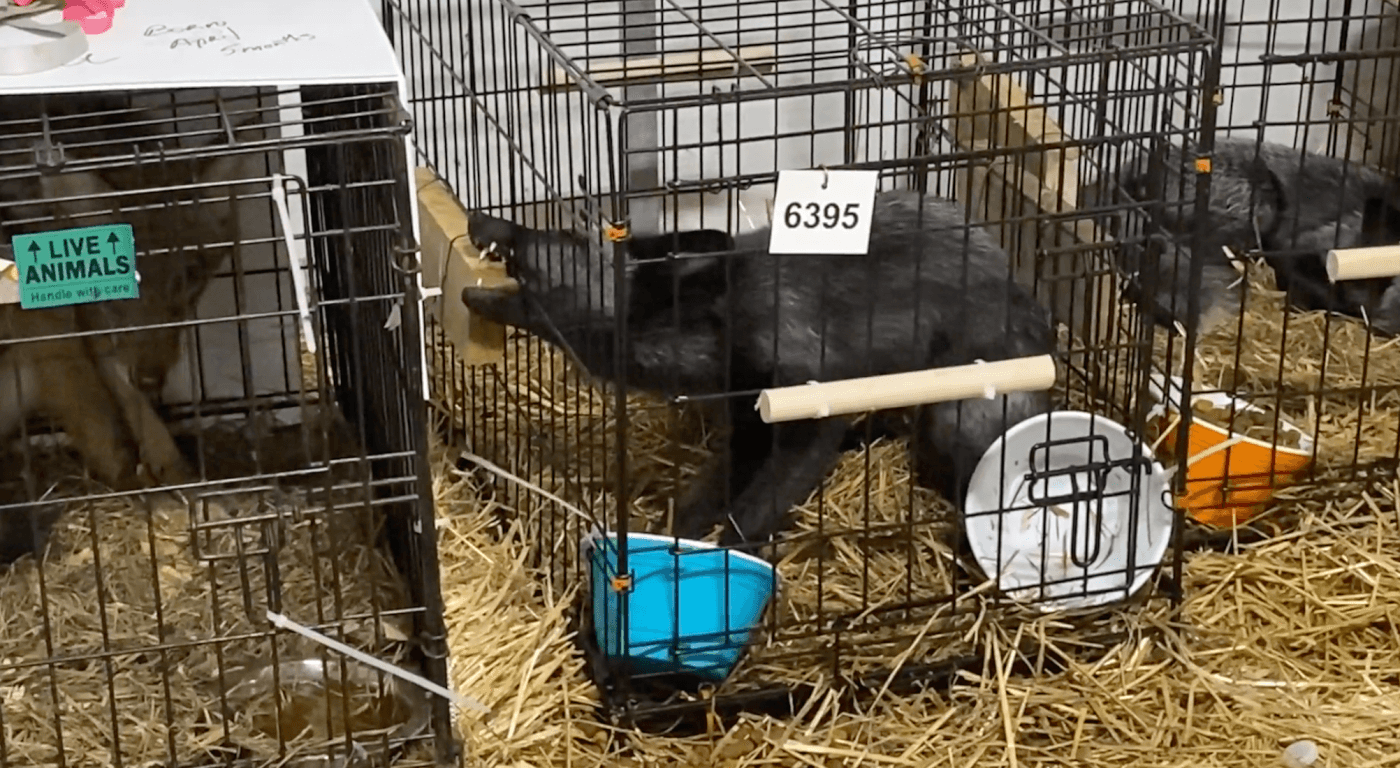
Raccoon ‘Number 6644’
This raccoon was seen frantically pacing, apparently panicked, in a small plastic carrier with no water.
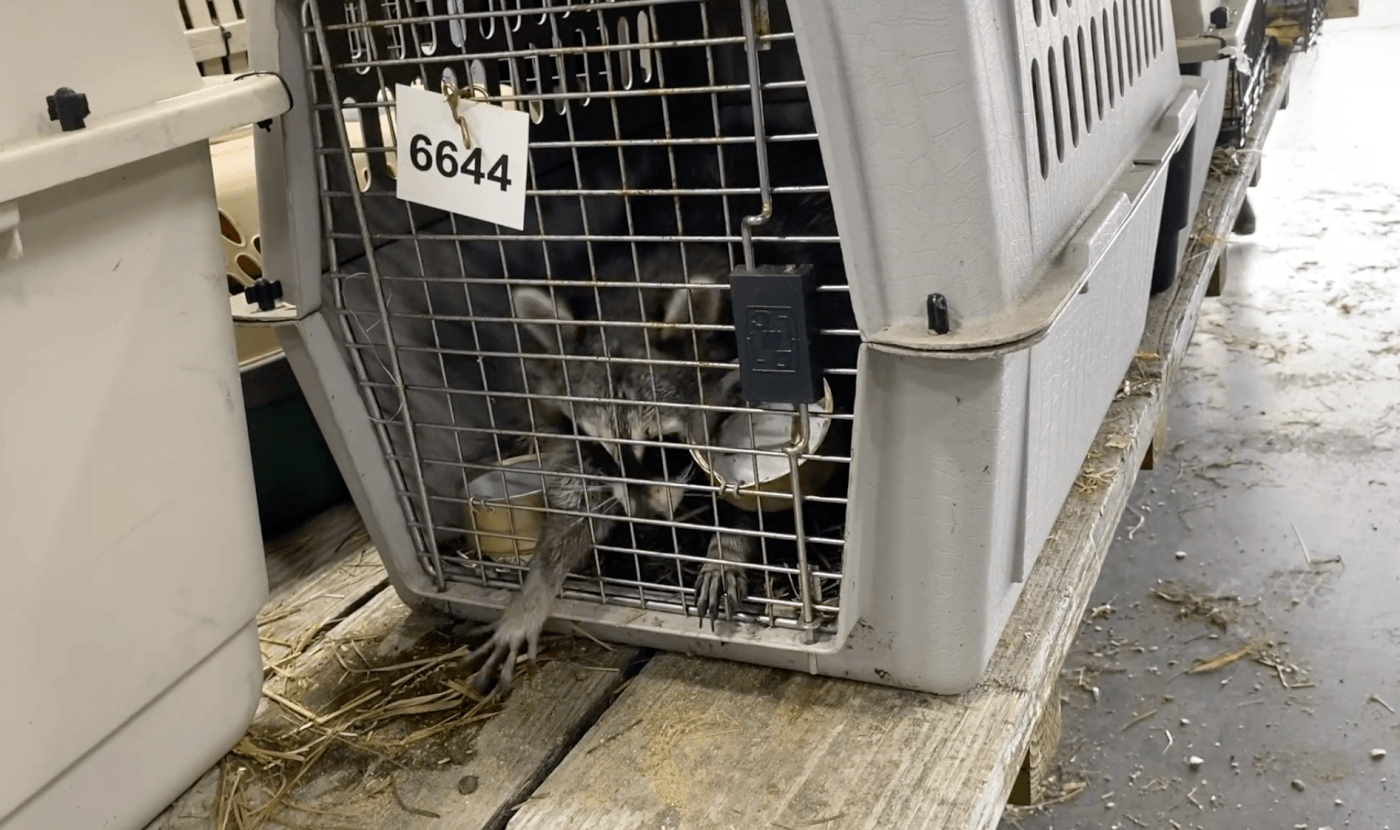
Exotic Birds
Several exotic birds, including peafowls, exotic waterfowls, and quail, were seen languishing in filthy cages so small that they were hardly even able to turn around.
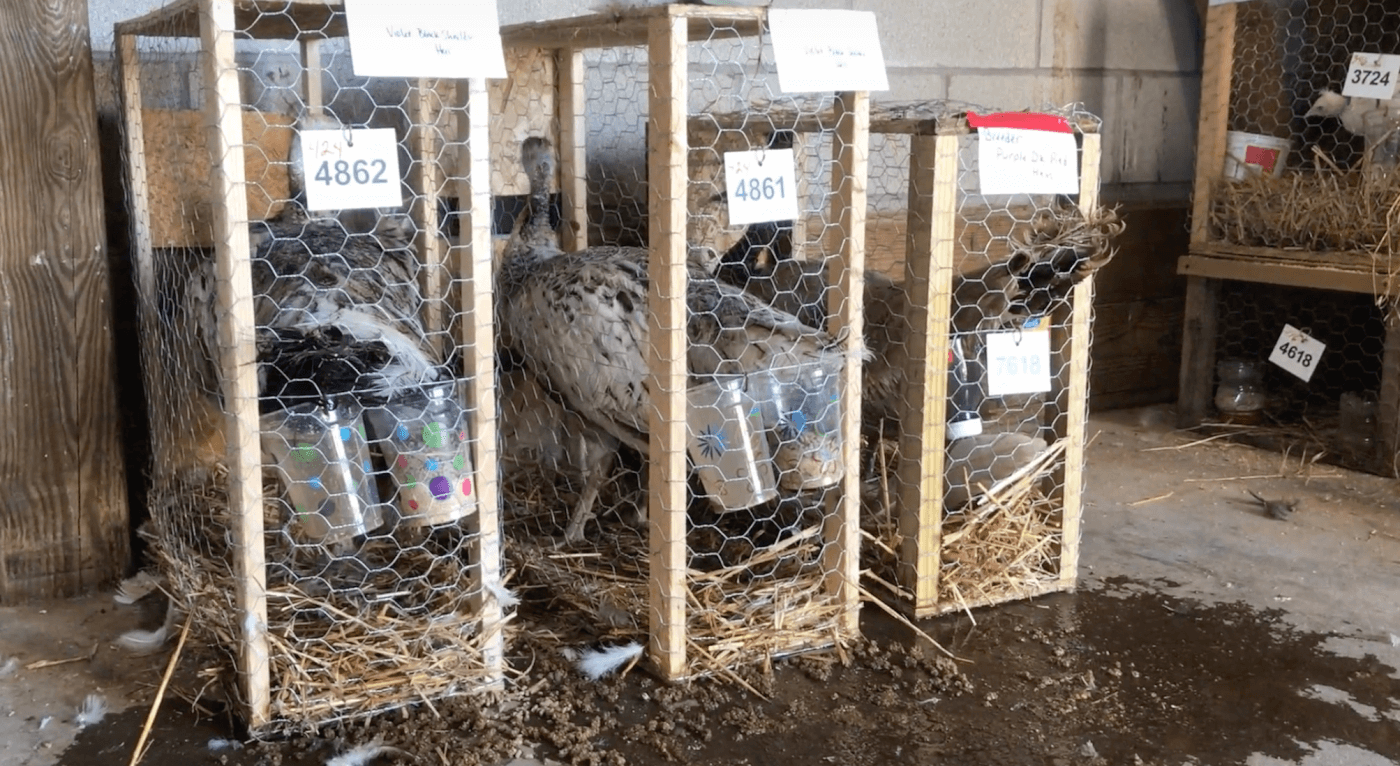
Nilgai ‘Number 2751’ and ‘Number 2752’
Two nilgai were seen emaciated with their ribs, backbones, and pelvic bones showing. Their natural habitat is the plains and grasslands below the Himalayas. They don’t belong behind wooden planks under the greedy eyes of roadside zoo owners.
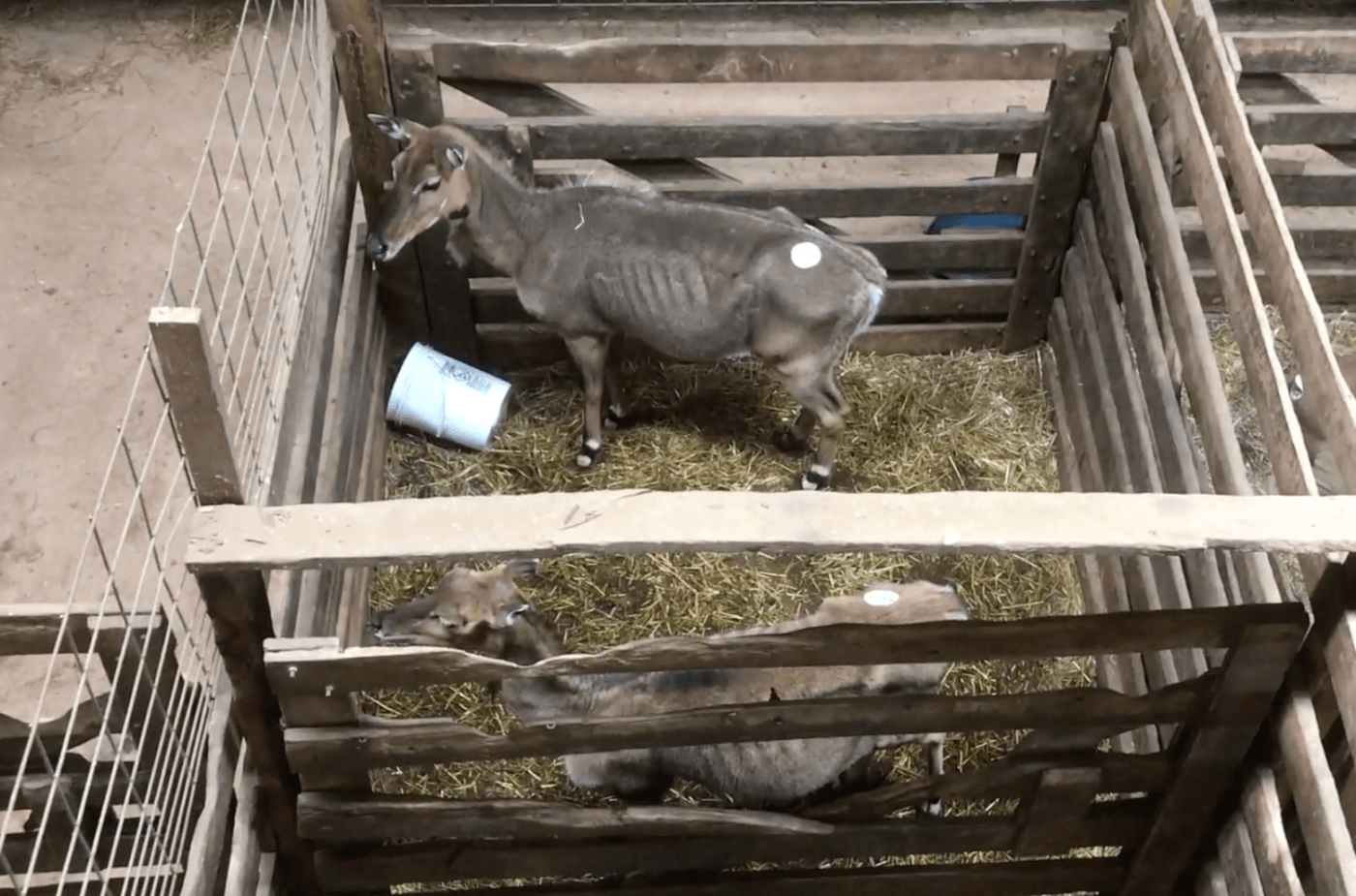
Macaw ‘Number 4858’
This macaw was seen with a large bald patch on his or her chest and abdomen. Animals confined in miserable conditions may resort to ripping out their own hair or feathers out of extreme anguish.
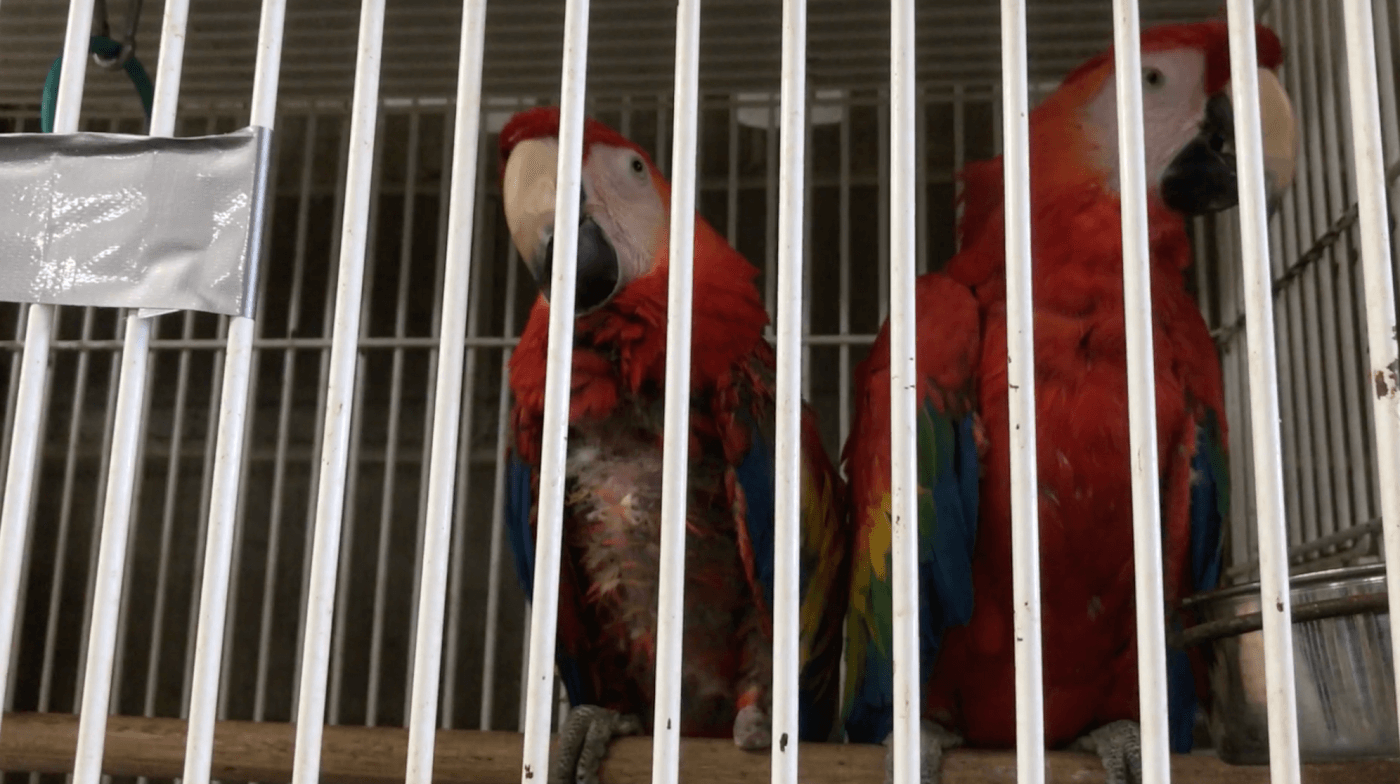
Sophia the Capuchin Monkey
During the auction, a 20-month-old capuchin named Sophia—also known as “Number 8219”—screamed and covered herself with a rag. An auctioneer encouraged participants to dress her up, as if she were a doll to be played with. In her natural habitat, Sophia would be racing through jungle canopies and spending time with her family. Instead, she will likely be condemned to a lifetime of cruel exploitation.
Help PETA End Mt. Hope’s Cruelty
Several times a year, thousands of animals suffer at auctions in Mount Hope, where they are sold like merchandise. Many end up in the hands of crummy roadside zoos or exhibitors who continue to exploit them for entertainment or other trivial reasons. Our fellow animals are living, feeling beings with interests of their own—not property to be bought and sold.
PETA has alerted the USDA to the above apparent AWA violations, requesting that the agency hold everyone responsible accountable to the fullest extent of the law. Please join PETA in urging the Mount Hope community to end these auctions and asking facilities that frequent them to stop breeding, selling, and buying animals.

